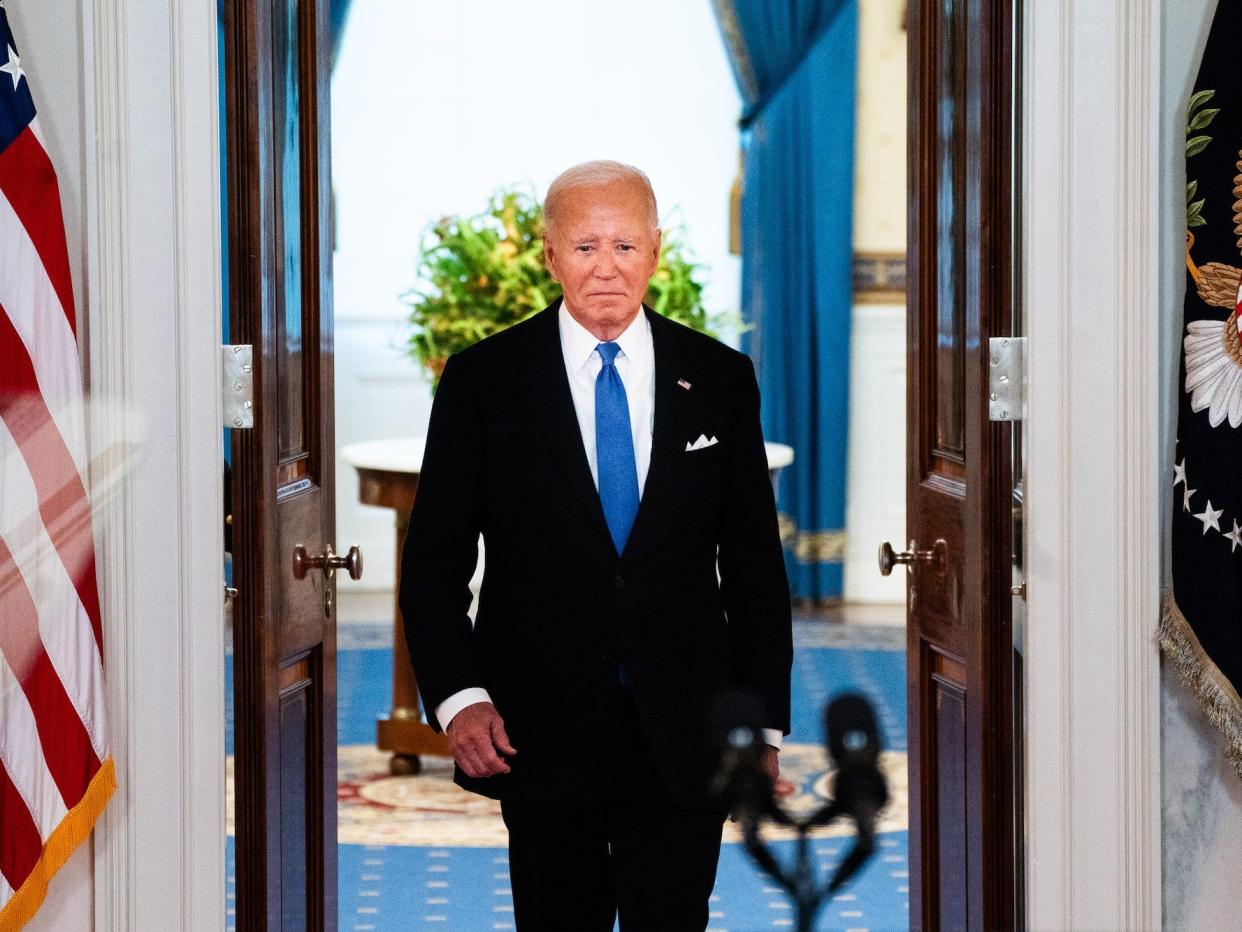Joe Biden is dropping out of the presidential race

- Oops!Something went wrong.Please try again later.
- Oops!Something went wrong.Please try again later.
President Joe Biden is dropping out of the 2024 presidential race.
The president's disastrous debate performance in late June sent shockwaves through the party.
Biden's campaign had argued he had a path toward winning despite trailing Donald Trump in polls.
In a stunning turnaround, President Joe Biden on Sunday announced he would withdraw his candidacy for reelection in 2024.
"While it has been my intention to seek reelection, I believe it is in the best interest of my party and the country for me to stand down and to focus solely on fulfilling my duties as President for the remainder of my term," Biden wrote in a letter posted on social media. "I will speak to the Nation later this week in more detail about my decision."
Biden on Sunday also endorsed Vice President Kamala Harris to succeed him in the Oval Office.
The president's decision to forgo his reelection came weeks after his disastrous debate performance against former President Donald Trump in late June.
Biden struggled to deliver coherent answers to numerous questions, reigniting concerns about his age that had been simmering among Democrats for months. In the days following the debate, Biden faced growing pressure to step aside, with an increasing number of Democratic politicians urging the 81-year-old president to do so.
The White House looked to have stymied a massive outcry from members of Congress, but as lawmakers returned to Washington, more seemed unwilling to accept Biden's decision to stay in the race.
Earlier this month, former House Speaker Nancy Pelosi said it was "up to the president to decide if he is going to run," which was odd as Biden had already declared he wasn't going anywhere and had committed to staying in the race.
Polling had long shown Biden trailing Trump both nationally and in key swing states, and the debate represented a key opportunity for the president to turn the race around. Instead, some national polls showed that the former president cemented his lead. Election prognosticators also moved Minnesota and New Hampshire closer to Trump with the possibility that even a state like New Mexico could become competitive.
On Thursday, Biden's top campaign officials conceded that the president had taken a small step back since the debate but emphasized that Trump was still beatable.
"There is a long way to go between now and Election Day with considerable uncertainty and polls in July should not be overestimated, but the data shows we have a clear path to win," Biden's campaign chair, Jen O'Malley Dillon, and campaign manager, Julie Chavez Rodriguez, wrote in a memo to staffers.
It's the first time in recent American history that a major party has had to finalize a nominee so close to a general election.
President Lyndon B. Johnson dropped out of the 1968 race amid widespread protests over his handling of the Vietnam War, though he did so in the midst of the primary season, giving Democrats plenty of time to rally around another candidate.
Vice President Hubert Humphrey ultimately claimed that year's Democratic nomination amid a chaotic convention in Chicago, only to lose to Richard Nixon.
Read the original article on Business Insider

